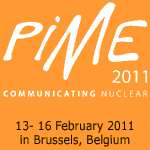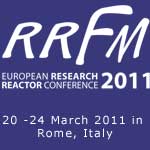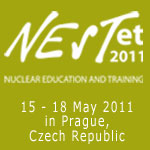
|
Vattenfall nuclear competence management: Co-operation in support of safety and performanceCompetence is often described as a chain, and rightly so. A chain is only as strong as its weakest link, and this holds true also when it comes to safety and performance in the nuclear power sector. A high-level of safety and performance must be maintained by all categories of staff. Therefore, we need a continuous supply chain of people of the highest possible level of competence, starting with an initial influx from the educational system, and continuing throughout all stages of a staff member’s competence development. Rather than present an exhaustive list of all ongoing activities, I will instead provide a representative illustration of Vattenfall’s competence management training provision, which takes place at all levels. Competence is not just achieved through training. Even more important is the application of knowledge in one’s daily work. This report, however, focuses on training and outlines four important components:
The Swedish Nuclear Technology CentreAbout 20 years ago, the situation with regards to nuclear engineering education in Sweden was characterised by a downward curve, with only a few professors (all close to retirement) and a few students. This fact triggered a jointly organised project in which the nuclear industry joined forces with government inspectors to coordinate the sponsoring of education and research at three Swedish universities. The Swedish Nuclear Technology Centre (www.swedishnuclear.se), and other similar educational initiatives, have gradually and dramatically improved the situation, resulting in a rapidly increasing enrolment in nuclear education programmes. In short, Sweden has managed to generate spectacular change. Of the present 17 tenured scientists and teachers working at nuclear universities, 15 are aged between 35 and 50 years of age. Moreover, there is a large pool of younger talent in the form of PhD students and new post-doctoral students. The Nuclear Safety and Training CentreThe training of staff at nuclear power plants is provided by the Nuclear Safety and Training Centre (the Swedish acronym is KSU), a company jointly owned by Sweden’s nuclear power operators. Simulators identical to the real control rooms operated at Sweden’s ten nuclear power reactors are used to provide training for operational staff. In addition, courses on virtually any aspect of nuclear power are also taught. The most advanced courses are taught by universities in collaboration with KSU. Since autumn 2010, KSU and Uppsala University have been collaborating on the provision of a bachelor’s degree programme in nuclear engineering. Barsebäck NPP, which was taken out of operation a few years ago, has now got a new life as a training facility. There it is possible to practice operations with a real full-scale reactor and prepare staff well for, among other things, upcoming revision work. Such training can reduce the downtime, as well as reduce the doses of radioactivity to which staff are submitted during these revisions. The European Nuclear Energy Leadership AcademySix European companies, Vattenfall being the third largest of them, joined forces recently to establish a new academy for leadership development in the nuclear sector. The new institute, ENELA (www.enela.eu), has its seat in Munich, Germany, and offers two major training programmes. The ENELA Leadership Cycle (ELC) is intended for experienced staff ready to take on high-level leadership duties like that of a reactor manager, or higher. The programme consists of seven one-week modules, spread over eight months. The ENELA Management Programme (EMP) has a similar content, but is intended for talented young individuals with a few years of professional experience. The Nordic Safety Management InstituteNuclear power, being a multi-faceted industry, requires a broad understanding of many different aspects for it to perform successfully. This is particularly true for safety management. Matters that at first sight could seem to have little or no connection with safety could still be of great importance. For instance, centralised procurement procedures (to idea is to save money by getting better prices through bulk purchasing) can affect safety if the central team does not have sufficient understanding of the special needs that nuclear power plant operation has. Another very topical issue is that of the importance of combining security and safety in an optimal way. Vattenfall’s first priority is safety and attention to safety management is a top priority. All high-level managers attend courses on safety management. These courses are based on a multi-disciplinary approach. Consequently, hydro and nuclear power joined forces to establish the Nordic Safety Management Institute, and the lecturers and case studies involved are taken from many different areas, including the civil aviation and oil refining industries. A recent highlight was a special training session organised when the present CEO took over the leadership of Vattenfall. In that course, the new CEO and several other members of the Executive Management Group spent several days on a nuclear safety management training course. ConclusionVattenfall is committed to achieving a world class level of operational safety and nuclear power production by 2014. The actions described above represent part of the strategy that has been put in place to enable it to reach this goal. Jan Blomgren
|
||||||||
|
|



